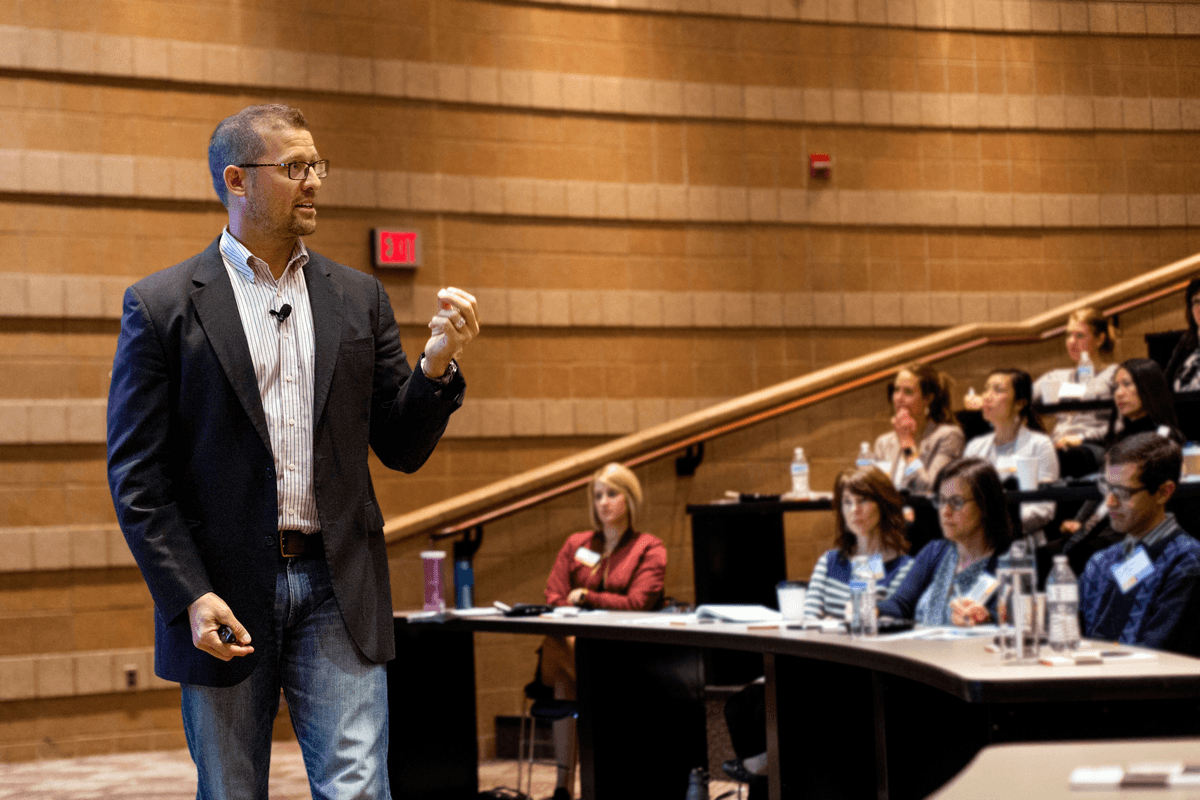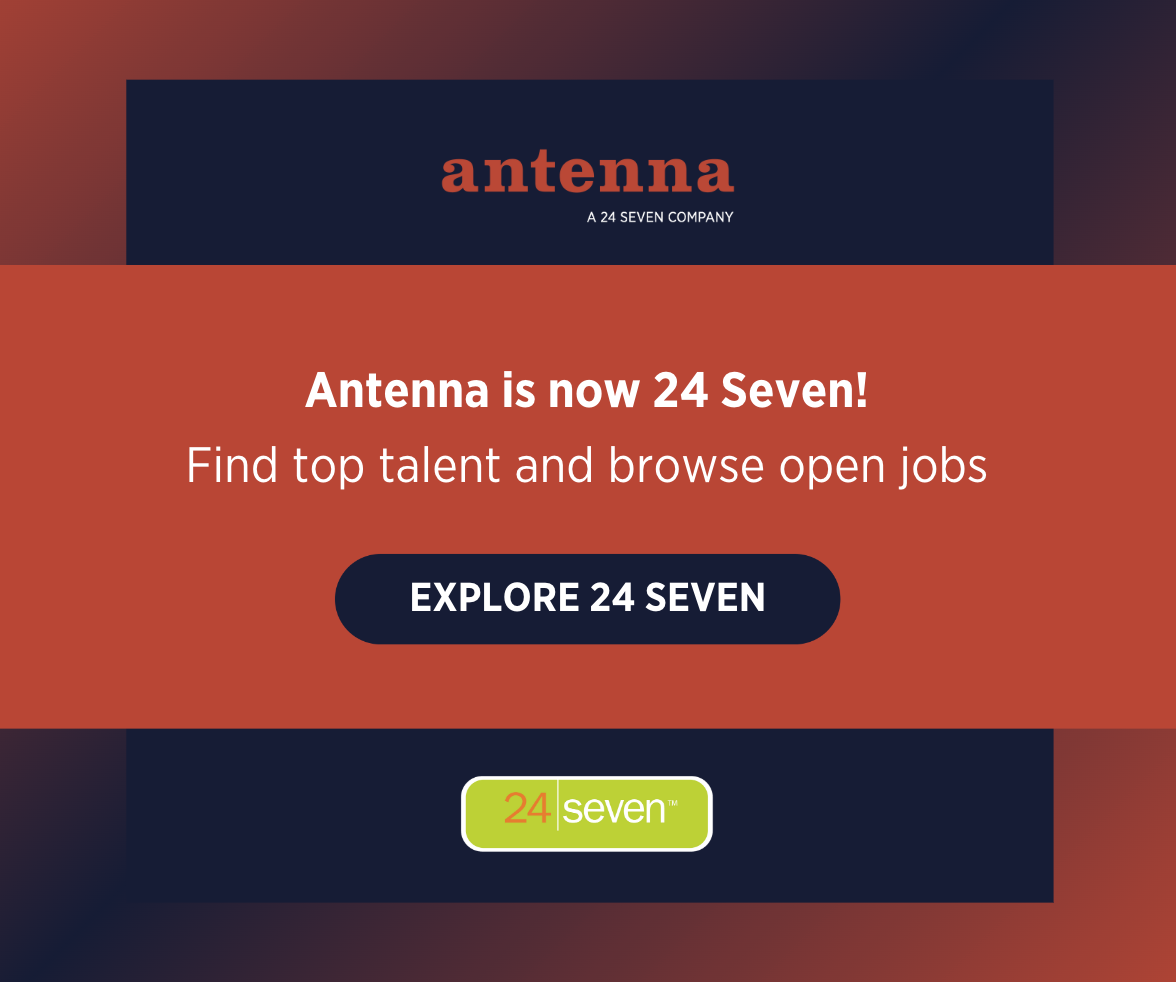
Leading with a Purpose: Making Your Work More Meaningful
“Work isn’t working for so many people,” said Brendon Schrader, as he kicked off the conversation about purpose and work for the Way We Work series featuring Brandon Peele, Lora Geiger, and Maggie Tomas. Though record-low unemployment rates paint a sunny picture of the modern world of work, seven out of ten people say that they would leave their job for one where they feel more fulfilled and one out of three are willing to consider lower pay for more fulfillment.
Talking about work from a purpose-driven perspective gives people “a compass to guide their career path, a language to talk about what they want to do, and validation that purpose really does matter” said Maggie Tomas, the Director of the Graduate Career Center at the Carlson School of Management. In the “war for talent,” Lora Geiger, Senior Manager at PwC’s Leadership Coaching Center of Excellence, purpose-led companies can not only recruit but retain top talent. “When we live our fullest and best lives at work, you can have more access to your potential.” Employees who are not only engaged, but fulfilled, produce better results and plan to stay with their company three years longer than their unfulfilled counterparts.
So how can you activate your purpose at work? How can you inspire and ignite your teams to connect from a deeper level? Brandon Peele, of Imperative, is here to help.
Busy is the New Lazy
There is a major difference between being engaged at work and being fulfilled at work. Engagement is largely focused on the actions, the volume, the busyness of the work. “Anybody can be busy,” said Peele. “When I was an investment banker I was very engaged, working a ton, but I was not fulfilled.” Fulfillment comes from a sense of connection, emotion, satisfaction. Feeling like you can bring your whole self to what you’re doing. Engagement and fulfillment don’t come at the expense of one another – you can be engaged and fulfilled – but they aren’t a guarantee of each other. Engagement turns us into human doings, whereas fulfillment prioritizes us as human beings.
Two thirds of the workforce reports feeling unfulfilled at work. “If this isn’t the time, there never was one. Everything is at stake,” said Peele. The crisis of disengaged employees not only has detrimental business effects, but hurts our society as a whole. You only have a 1% likelihood of being fulfilled in life if you’re not fulfilled at work. Activating human potential at work is the conversation that we need to be having around the future of work.
Not My Job
Feeling fulfilled at work is not actually your employer’s responsibility. “You can do this anywhere,” said Peele. “It’s less defined by circumstance and more defined by heart.” While certain jobs may be more aligned with your purpose or give you more opportunity to live your purpose, “there are purpose moments right in front of you, in the job you already have.”
Peele advocates both role-hacking and examining the narratives you tell about the work you do. Sure, you have to produce a video or write a report, but if you can focus on the impact that you’re having for the subject, the effect it will have on your company, or the larger conversation it will start in the world can keep you motivated and fulfilled. By knowing what your purpose drivers are, what motivates you, your why, you can begin to tie your daily activities into alignment with what you’re most passionate about.

Next Level
It’s easy to look at this from the thousand-foot view, but Peele pushes people to get really involved and make it personal. “Don’t sit back and judge this, reflect on it, inspect the data – approach this like there’s something at stake for you.” When we bring our whole selves to the conversation, to our work, our brains process the information and experiences differently. Shallow learning in the cerebral cortex processes information, content, and memory, but deep learning gets into our limbic system, influencing our emotions and helping us truly integrate our experiences. It’s this deep learning that brings about real change in our behavior, and can lead to more fulfillment. “What would change if we did this regularly?” asked Peele.
“It’s hard to stop talking about purpose! We want more of those moments,” said Peele. “When you speak about your purpose, in your own voice, it begins to pattern your identity.” Team relationships become more authentic and connected, employees understand each other as people and are more likely to go above and beyond for one another. Another added benefit? “Once you know your own drivers, you can speak to them in others. You can take their perspective and see what makes people tick.”
“We need your full heart on the line,” said Peele. “We need people to love their jobs and see a future for themselves.” Purpose work has impact on the individual, on teams, and on the society as a whole, and we can no longer ignore this imperative conversation.
Subscribe to our blog to get the latest post delivered to your inbox weekly.
Stay connected with Antenna. Follow @Antenna for our take on marketing trends, corporate culture, and current events.
ABOUT ANTENNA
Founded in 2006, Antenna is a leader in bringing top marketing professionals to corporations and non-profits for project-based consulting, interim leadership, staff augmentation, and direct placement needs. Headquartered in Minneapolis, Antenna draws from its private community of experienced marketers to provide clients with on-demand resources – both individuals and teams. Our vision is to fundamentally change the way marketing teams get work done by helping clients balance the flexibility and expertise required by today’s modern marketing organization.
